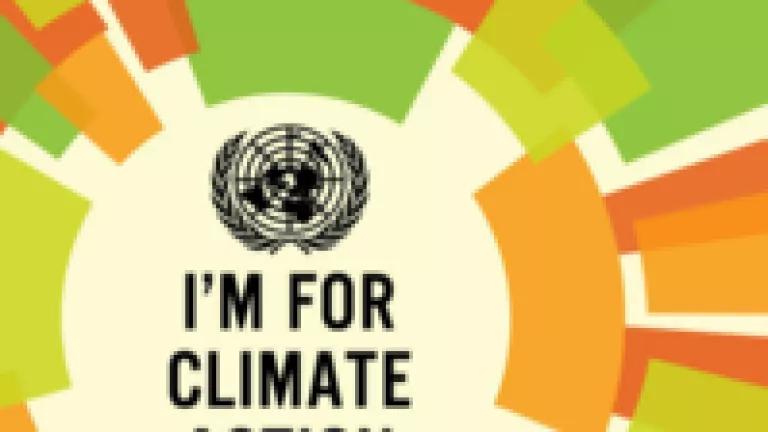
The new climate agreement expected to be forged in Paris at the end of the year represents an incredible opportunity to accelerate the clean energy revolution already underway across the world. Yet what happens at the Paris conference will be much more wide-ranging than an agreement reached solely among countries.
The French Government hosts have made catalyzing and showcasing climate commitments from cities, regions, companies, and investors one of the four essential pillars of the Paris outcome. This so-called "Lima-Paris Action Agenda" aims to provide concrete solutions and positive momentum to the often fractious negotiating process. The action agenda, along with the other three pillars - the negotiated agreement, country contributions to 2025-30, and finance - together form the foundation for what the President of Peru has called the "greatest alliance the world has ever seen" to combat climate change.
But do local and regional climate actions really mean anything relative to country contributions? The transformative power of the groundswell is becoming increasingly clear. Many governors, CEOs, and mayors are already setting more ambitious commitments and taking accelerated actions compared to their national government counterparts. For example, Hawaii recently became the first U.S. state to legislate that 100% of its electricity come from renewable energy by 2045. And Apple recently announced it would significantly extend its 100% renewable energy commitment to cover energy use from its entire supply chain - 60x bigger than its own company's energy footprint. And Vancouver recently joined 10 other world-class leading cities in committing to derive 100% of its energy from renewable sources.
Such bold climate commitments have enormous potential to reduce greenhouse gases, as cities alone account for 70 percent of energy-related emissions. On a global scale, over 200 cities worldwide representing over 400 million people have already made significant commitments to reduce their greenhouse gas emissions, with an annual cumulative impact equivalent to the emissions of South Africa. And innovative tools such as the NAZCA platform are now helping the public to better understand, aggregate, and track the climate actions of their own city, state, or company in a user-friendly manner.
Many national leaders are increasingly calling for their cities, states, and companies to announce concrete climate commitments in the run-up to Paris. U.S. Secretary of State John Kerry, a veteran of every climate negotiation since they started in 1992, recently called for an "all-hands-on-deck" effort from leaders at all levels to be showcased at Paris. And the French Foreign Minister Laurent Fabius, President of the Paris conference, stated last week that the "groundswell" of climate actions demonstrates that governments are not alone in their efforts to bend the emissions curve.
Such calls are partly due to the realization that national contributions at Paris will only optimistically put the world half way to avoiding dangerous levels of climate change, often defined as below 2°C of global temperature rise. The Paris action agenda therefore gives vitality and immediacy to country contributions that are often quite vague and only kick-in after 2020, while also setting the stage for national ambitions to be ratcheted-up over time through enhanced domestic activity.
The groundswell of climate actions encourages governments, markets, media, and the public to think about climate policy in a new way. Instead of international gridlock, climate policy becomes associated with pragmatic, concrete, positive action here and now. Changing the 'tone' around climate action in this way opens new political possibilities at every level by framing the issue as one of immense opportunity rather than a sharing of burden. Such framing also helps create a social expectation that it is incumbent on everyone to take climate action, creating a virtuous upward cycle.
This more positive atmosphere around climate action was in part ushered in by the Climate Summit last September. The Summit, along with the massive People's Climate March that mobilized over 600,000 people around the world and drove home the message that we need all hands on deck for climate action now. The slogan of the march, "to change everything, it takes everyone," was reminiscent of a call to revolution where everyone is expected to show solidarity and play their part.
According to the latest advice from scientists, we only have a 10-15 year window of opportunity to meaningfully address climate change. We must learn the major lesson from the last big climate conference in Copenhagen where we put all our eggs in the agreement basket alone and the basket broke. Paris must be seen through a more holistic lens, recognizing that it is not an end point or an abstract agreement, but an acceleration moment toward a safe climate and prosperous future. And the groundswell of climate actions, galvanized through the Paris action agenda, is a primary vehicle to show the world that future is coming up fast.


